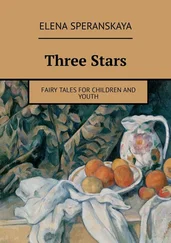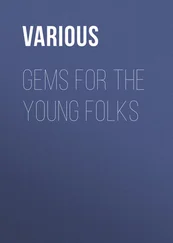Various - Tales for Young and Old
Здесь есть возможность читать онлайн «Various - Tales for Young and Old» — ознакомительный отрывок электронной книги совершенно бесплатно, а после прочтения отрывка купить полную версию. В некоторых случаях можно слушать аудио, скачать через торрент в формате fb2 и присутствует краткое содержание. Жанр: Сказка, foreign_antique, foreign_prose, на английском языке. Описание произведения, (предисловие) а так же отзывы посетителей доступны на портале библиотеки ЛибКат.
- Название:Tales for Young and Old
- Автор:
- Жанр:
- Год:неизвестен
- ISBN:нет данных
- Рейтинг книги:3 / 5. Голосов: 1
-
Избранное:Добавить в избранное
- Отзывы:
-
Ваша оценка:
- 60
- 1
- 2
- 3
- 4
- 5
Tales for Young and Old: краткое содержание, описание и аннотация
Предлагаем к чтению аннотацию, описание, краткое содержание или предисловие (зависит от того, что написал сам автор книги «Tales for Young and Old»). Если вы не нашли необходимую информацию о книге — напишите в комментариях, мы постараемся отыскать её.
Tales for Young and Old — читать онлайн ознакомительный отрывок
Ниже представлен текст книги, разбитый по страницам. Система сохранения места последней прочитанной страницы, позволяет с удобством читать онлайн бесплатно книгу «Tales for Young and Old», без необходимости каждый раз заново искать на чём Вы остановились. Поставьте закладку, и сможете в любой момент перейти на страницу, на которой закончили чтение.
Интервал:
Закладка:
'That is precisely what I intended to inquire of you.'
'It is a deeply-affecting story; but'—and here the young lady blushed and hesitated—'I think it would not be right in me to reveal it. I believe I am the only person existing who knows the truth; and the means by which I obtained my knowledge would be deemed scarcely correct, though not perhaps exactly dishonourable.'
This avowal sharpened my curiosity, and I entreated her to say at least how she became possessed of the story.
'To that there can be no objection,' was the reply. 'In one of my rambles over the old house, I espied in a small escritoire a packet of letters bound up in tape, which was sealed at the ends. The tape had, however, been eaten by moths, and the letters liberated from it. Female curiosity prompted me to read them, and they gave me a full exposition of our great-aunt's early history.'
During the rest of my stay in that part of the country, I never failed to urge my cousin to narrate the events which had brought Coote-down to its present melancholy plight. But it was not till I called to take leave of her, perhaps for ever, that she complied. On that occasion, she placed in my hands a neatly-written manuscript in her own handwriting, which she said contained all the particulars I required. Circumstances have since occurred that render it not indelicate in me to publish the narrative, which I do with but little alteration.
In the middle of the last century the proprietor of Coote-down was Charles James Hardman, to whom the estate lineally descended from a long line of ancestors. He was from his youth a person of an easy disposition, who minded very little, so that he could follow his ordinary amusements, and could see everybody around him contented; though his habits were too indolent to improve the condition of his dependants by any efforts of his own. At the age of twenty-five, he married the heiress of a baronet belonging to the northern side of the county. She was a beauty and a belle—a lady full of determination and spirit; consequently the very opposite to himself. She was, moreover, two years his senior. As was predicted by those who knew the couple intimately, the match was not productive of happiness, and they had been married scarcely a year and a half when they separated. It appeared that this unpleasant step was solely the fault of the wife; and her father was so incensed at her rash conduct, that he altered his will, and left the whole of his property to Hardman. Meanwhile, it was given out that the lady had brought her lord a son, and it was hoped that this event would prove a means of reconciling the differences which existed between them. Despite all entreaties, however, Mrs Hardman refused to return to her husband's roof.
Ten years passed, and she lived so completely in retirement, that she deprived herself even of the society of her child; for when the period of nursing was over, she sent him to Coote-down Hall, where he was educated. At the end of that period her father died; and, to her great disappointment, instead of finding herself uncontrolled mistress of a large fortune, she discovered it was so left, that unless she returned to her husband, she would be unable to benefit by it in the smallest degree. Mutual friends again interfered, and, after some difficulty, persuaded her to meet Hardman at her father's funeral, which she appeared to have no objection to attend. The happy result was that a reconciliation took place, and she resumed her proper station as the lady of Coote-down Hall. It was, however, observed that before she returned, the little son was sent away to continue his education in a foreign seminary.
Privy to all these arrangements, and in fact the chief mover in them, was Hardman's attorney. Such was the squire's indolence of disposition, that to this individual he confided everything; not only the management of his estates, the receipt and payment of all monies, but the arrangement of his most secret transactions. But, Mr Dodbury bearing the character of a highly just and honourable man, no suspicion ever existed that he abused the absolute unbounded trust reposed in him in the slightest degree. Indeed, putting aside the native honesty of his character, his position in the district was so good, that it would have been very bad policy for him to jeopardise it by any abuse of the confidence reposed in him. Being the younger son of an ancient family, and a distant relation of Hardman, he was received in the best society. Dodbury was a widower, with an only daughter, an amiable and elegant girl. She was just budding into womanhood, when it was announced that the heir of Coote-down would shortly become of age, and that the event was to be celebrated with the utmost pomp. Many strange conjectures had for years been current to account for his being kept so long away from home; but they were partially silenced when it was known that the young man was on his way to his paternal roof.
Extensive preparations were made for his reception: all the tenantry, not only of Coote-down, but those from the maternal estate near Ilfracombe, were invited to attend his debarkation at Dartmouth. The lawn, paddock, and parks were strewed with tents for their accommodation, and refreshments of the most expensive kind were provided without limit. Several distinguished and noble friends of both families were invited to join in the festivities; and though every corner of Coote Hall, as well as the surrounding farmhouses, were made available for sleeping-room, yet there was not a bed to be had in Dartmouth a week before the day named in the invitations 'for love or money.' It appeared that the neglect which had been shown to young Hardman for so many years was to be atoned by the magnificence of the fête to celebrate his return.
Dodbury's share in managing the affairs of the family had declined every day since Mrs Hardman's resumption of her proper position as his patron's wife. She was a woman of strong intellect, and perfectly able to superintend what had been before so much neglected by her husband. She had an ambitious spirit, and Dodbury doubted not that the grand reception-fête was organised for the purpose of carrying out some great project connected with her son.
The day of Herbert Hardman's arrival from France proved auspicious. It was a lovely day in the middle of June. When he landed at the village of Kingswear, opposite to Dartmouth, the fishermen saluted him with a discharge of all the firearms they could collect. His parents received him at the landing-place, his mother embracing him with every outward and public mark of affection. A long cavalcade followed the carriage in which he was conducted to Coote-down Hall, consisting of the tenantry, headed by the most distinguished of his father's guests.
At the entrance of the domain, new tokens of welcome presented themselves. The gates were plentifully adorned with flowers, and at a turn of the thickly-wooded avenue, an arch of garlands was thrown across the path. The lawn was covered with lads and lasses from the surrounding farms, who, when Herbert appeared, set up a joyous cheer, whilst the drawing-room windows of the house were filled with ladies waving handkerchiefs.
The hall of the mansion was lined with servants, who obsequiously bowed as Herbert passed them. When he made his appearance in the drawing-room, there was almost a struggle amongst the ladies for the earliest honours of salutation. One maiden, however, stood apart, drinking in deeply the attestations of favour with which the heir of the estate was received, but too timid to share in, or to add to them. This was Miss Dodbury. The gentlemen, most of whom had accompanied Herbert from the landing-place, now joined the ladies; and Mr and Mrs Hardman entered the room amidst the hearty congratulations of their guests.
The fashionable dinner hour at that period was much earlier than at present, and but little time elapsed ere the important meal was announced. Mrs Hardman led forward a tall, handsome, but somewhat haughty-looking girl, whom she introduced to her son as the Lady Elizabeth Plympton, desiring him to lead her to the dining-room. She attentively watched Herbert's countenance, to observe what effect the damsel's beauty would create on him; but to her disappointment she saw that her son received her with no more than the politeness of a young gentleman who had been educated in France.
Читать дальшеИнтервал:
Закладка:
Похожие книги на «Tales for Young and Old»
Представляем Вашему вниманию похожие книги на «Tales for Young and Old» списком для выбора. Мы отобрали схожую по названию и смыслу литературу в надежде предоставить читателям больше вариантов отыскать новые, интересные, ещё непрочитанные произведения.
Обсуждение, отзывы о книге «Tales for Young and Old» и просто собственные мнения читателей. Оставьте ваши комментарии, напишите, что Вы думаете о произведении, его смысле или главных героях. Укажите что конкретно понравилось, а что нет, и почему Вы так считаете.












